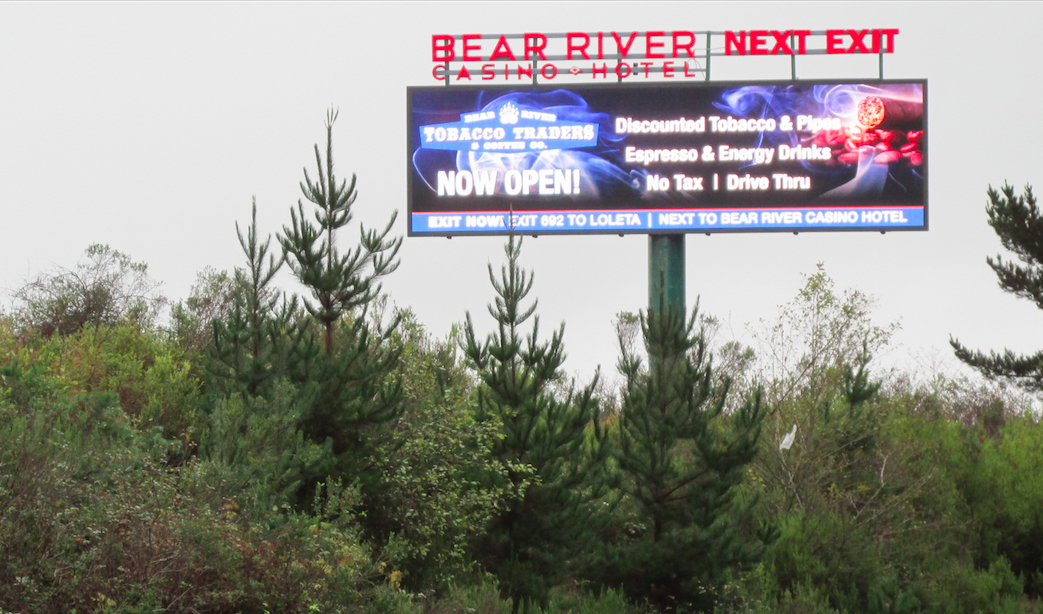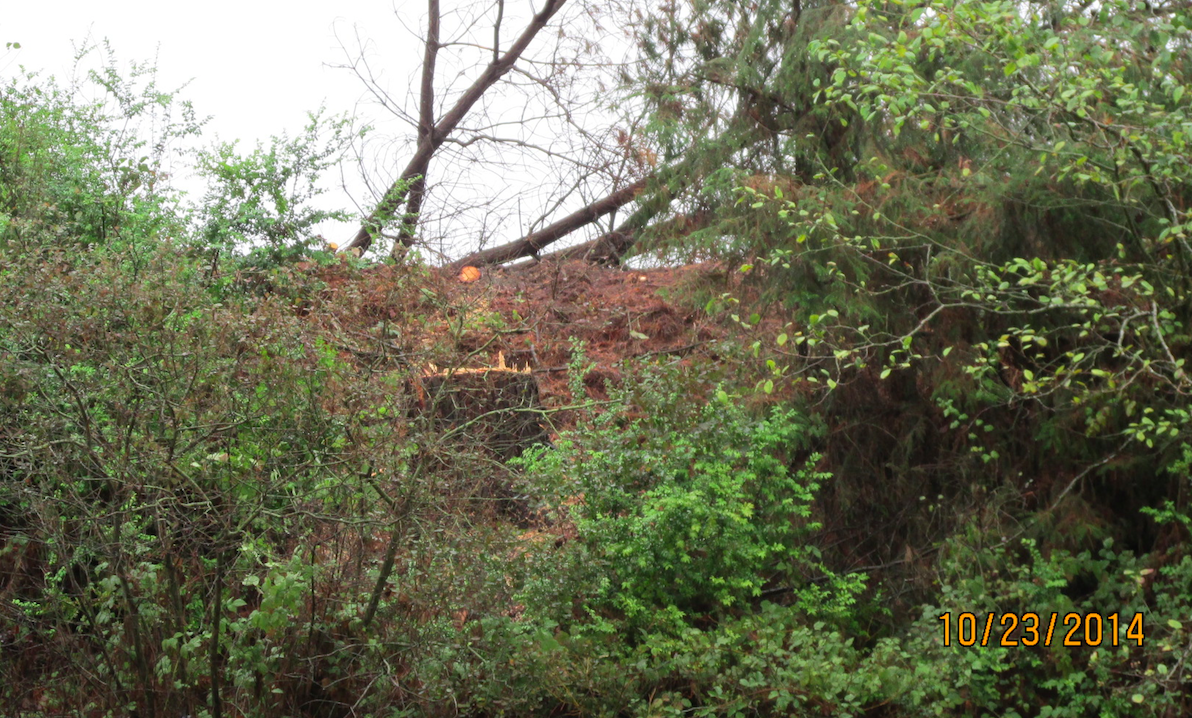
The Bear River Band of Rohnerville Rancheria violated a handful of civil government codes but no criminal codes in the process of erecting a large digital billboard along Highway 101 near the Bear River Casino, according to investigators with the California Highway Patrol. The violations include improper removal of trees and vegetation as well as encroachment on state-controlled air space. Penalties for these infractions could cost the rancheria as much as $10,000 for each felled tree and $1,000 per shrub — but only if the agencies involved pursue charges.
As previously reported, local officials with the California Department of Transportation (Caltrans) had asked the CHP to investigate after noticing that trees and bushes had been removed near the base of the electronic sign, which lies within the agency’s right of way.
In an Oct. 23 internal email, obtained by the Outpost through a California Public Records Act request, Caltrans District 1 Permit Chief James Van Bonn said that trees within the agency’s right of way had been “illegally and willfully cut down without a valid encroachment permit.”
 Photo taken by Caltrans employee documenting the vegetation removal.
Photo taken by Caltrans employee documenting the vegetation removal.
The official investigation found that Bear River Rancheria violated four state civil codes:
- California Streets and Highways Code Section 730.5, which allows for those hefty fines — $10,000 per tree, $1,000 per shrub cut down or destroyed on any state highway or right-of-way, plus attorney and expert fees;
- California Streets and Highways Code Section 3346, which allows fees three times the actual cost of compensation for “wrongful injuries to timber, trees, or underwood upon the land of another;”
- California Streets and Highways Code Section 104.12, which spells out leasing rights above and below state highways; and
- Caltrans Right-of-Way Manual Policy No. 105.01.00.00, which defines the agency’s rights to the “airspace” surrounding property held for transportation purposes.
The investigation also found that the rancheria violated Humboldt County code 313-64.1.4, which holds that major vegetation removal in the Coastal Zone is considered development and therefore requires a permit. Steven Santos, Humboldt County’s development assistance manager, said enforcement of such violations is complaint-driven, and so far the county has received no complaints about this issue. Ultimately, he said, the property owner — Caltrans, in this case — is responsible for paying any fines. After-the-fact planning permits cost double the usual fee; building permits are triple, Santos said.
It’s not clear whether any of the agencies involved will pursue fines in the matter. A Caltrans spokesman said the decision will ultimately be made by the agency’s legal department. And, again, the county hasn’t received any complaints about the issue, though Santos said, “If [the vegetation clearance] poses an imminent threat, we may act on it independently.”
Matthew Mattson, executive director of tribal government operations at Bear River Rancheria, said he has yet to see any of the findings from the CHP’s investigation.
“I do know that we have been working with Caltrans and are trying to work through a resolution,” Mattson said. The rancheria was unaware of the boundary line, he added. “We’re collaborating and cooperating to the maximum extent and will continue to do so.”
CLICK TO MANAGE